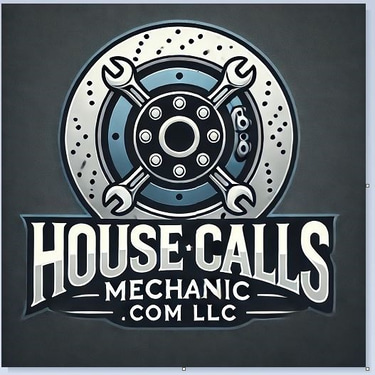Your blog post
2/16/20253 min read


Brake Maintenance 101: Why Ignoring Your Brakes Can Cost You More Than You Think
As a mechanic, I’ve seen it all when it comes to car maintenance. From oil changes to tire rotations, most drivers are pretty good about keeping up with the basics. But there’s one critical area that often gets overlooked until it’s too late: brake maintenance. Your brakes are arguably the most important safety feature on your vehicle, and neglecting them can lead to costly repairs—or worse, dangerous situations on the road.
In this blog, I’ll walk you through why brake maintenance is so important, the warning signs that your brakes need attention, and the price points you could face if you ignore them. Let’s dive in!
Why Brake Maintenance Matters
Your brakes are what keep you and everyone else on the road safe. They work by converting kinetic energy (the motion of your car) into thermal energy (heat) through friction. Over time, the components of your braking system—brake pads, rotors, calipers, and fluid—wear down and need to be inspected, maintained, or replaced.
Ignoring brake maintenance can lead to:
Reduced stopping power, which increases the risk of accidents.
Damage to other brake components, like rotors and calipers, which are more expensive to replace.
Complete brake failure, which is not only dangerous but also incredibly costly to fix.
Warning Signs Your Brakes Need Attention
Here are some common signs that your brakes need maintenance or replacement:
Squeaking or Grinding Noises: This is often the first sign that your brake pads are worn out. If you hear grinding, it means the pads are completely worn, and metal is grinding against metal.
Vibrations or Pulsations: If your steering wheel or brake pedal vibrates when you brake, it could mean your rotors are warped.
Longer Stopping Distances: If your car takes longer to stop than usual, your brakes may be worn or your brake fluid may be low.
Brake Warning Light: Don’t ignore this! It’s your car’s way of telling you something’s wrong with the braking system.
Leaking Brake Fluid: If you notice a puddle of fluid near your wheels, it could be a sign of a leak in the brake system.
The Cost of Ignoring Brake Maintenance
Let’s talk numbers. Ignoring brake maintenance might save you a few bucks in the short term, but it will cost you significantly more in the long run. Here’s a breakdown of what you could end up paying:
Brake Pad Replacement
Cost if maintained on time: 150–150–300 per axle (parts and labor).
Cost if ignored: Worn brake pads can damage the rotors, increasing the total cost to 400–400–800 per axle for both pads and rotors.
Rotor Replacement
Cost if maintained on time: Rotors can often be resurfaced for 20–20–50 each if caught early.
Cost if ignored: Completely replacing rotors can cost 200–200–400 per axle, or more for high-performance vehicles.
Caliper Replacement
Cost if maintained on time: Calipers typically last a long time if the brake system is well-maintained.
Cost if ignored: A seized or damaged caliper can cost 300–300–800 to replace, depending on the vehicle.
Brake Fluid Flush
Cost if maintained on time: 80–80–120.
Cost if ignored: Old or contaminated brake fluid can lead to brake failure, requiring a full system repair that can cost $500 or more.
Complete Brake System Failure
Cost if ignored: If your brakes fail completely, you’re looking at a tow truck, emergency repairs, and potentially thousands of dollars in repairs—not to mention the risk of an accident.
How to Save Money on Brake Maintenance
The good news is that brake maintenance doesn’t have to break the bank. Here are some tips to keep your brakes in top shape and avoid costly repairs:
Inspect your brakes regularly: Most mechanics recommend checking your brakes every 12,000 miles or at least once a year.
Listen to your car: If you hear squeaking, grinding, or any unusual noises, don’t wait to get it checked out.
Replace brake pads early: It’s cheaper to replace brake pads before they wear down completely and damage other components.
Flush your brake fluid: Follow your manufacturer’s recommendations for brake fluid flushes (usually every 2–3 years).
Final Thoughts
Your brakes are your first line of defense on the road, and keeping them in good condition is non-negotiable. Regular maintenance might seem like an inconvenience, but it’s a small price to pay compared to the cost—and danger—of ignoring them.
If you’re unsure about the condition of your brakes, bring your car in for an inspection. As a mechanic, I’d much rather help you replace a set of brake pads than see you stranded on the side of the road with a failed braking system.
Stay safe, and don’t forget: Your brakes are worth the investment!
Got questions about your brakes? Drop them in the comments below, and I’ll be happy to help! And if you found this blog helpful, share it with your friends and family to spread the word about the importance of brake maintenance.
Quality Handyman services at your home.
Contact
Support
All ready have a quote & Ready to Schedule?
Mike@housecallsmechanic.com
913-735-9330
© 2025. All rights reserved.
